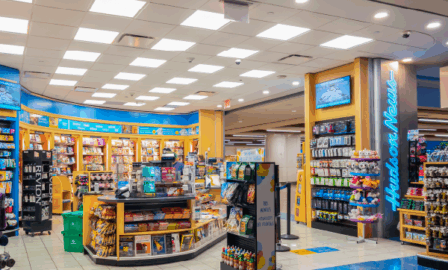FDA Proposes Seventh and Final FSMA Rule
After the rise of major outbreaks of foodborne illnesses and bioterrorism concerns, FSMA was signed into law to direct food companies to conduct analyses of reasonably foreseeable risks, implement controls to prevent hazards and monitor systems to ensure compliance and effectiveness. More than three years after becoming law, the Food and Drug Administration (FDA) has just posted the seventh and final major proposed regulation on food safety under the Food Safety Modernization Act (FSMA).
The major elements of the FSMA are:
- Preventive controls: Requires comprehensive, prevention-based controls across the food supply.
- Inspection and Compliance: Specifies how often FDA should inspect food producers.
- Imported Food Safety: Requires importers to verify that their foreign suppliers have adequate preventive controls in place to ensure safety.
- Response: Provides mandatory recall authority for all food products.
- Enhanced Partnerships: Recognizes the importance of strengthening existing collaboration among all food safety agencies – U.S. federal, state, local, territorial, tribal and foreign.
Proposed Rules
In response to the FSMA, FDA has published seven major proposed rules to the Federal Register with the goal to monitor and regulate food safety through each step of the supply chain.
-
- Produce Safety: Companies that grow, harvest, pack, and hold produce that is typically consumed raw must comply with standards around water, health, hygiene, equipment, facilities and training. Although FDA has announced that revisions will come, it is expected that these rules will impact most large growers. Because of the expected costs to comply with these new rules, there is still debate around how the rules will be enforced based on the size of the grower.
- Human Food Preventive Controls: Facilities that manufacture, process, pack, or hold human food must maintain and implement a written food safety plan. It must contain elements like hazard analysis, preventative controls, monitoring procedures and corrective action.
- Foreign Supplier Verification: Importers must verify their suppliers are employing prevention-based food safety practices. Importers will need to have a plan in place that identifies potential hazards for each food they are importing. With the expanding global supply chain, this will become increasingly more complicated, yet more critical for the safety of the food chain.
- Accreditation of Third-Party Auditors for Foreign Facilities: The combination of this rule, plus the Foreign Supplier Verification, shifts the focus from relying on FDA to find problems at import to proactively preventing problems. It has been estimated that this verification program will cost the food industry between $400 and $500 million.
- Preventive Controls for Animal Food: Animal feed manufacturers must comply with various aspects of operations such as good hygiene practices, proper maintenance of plants, pest control, sanitation principles, and labeling of ingredients and finished products. This rule will have a significant impact on the animal food industry, as there are no GMP procedures in place today for animal food manufacturers outside of medical feed.
- Intentional Adulteration of Food: Facilities that use certain processes that are likely targets of terrorism must have a written defense plan.
- Sanitary Transportation of Human and Animal Food: Shippers, carriers, receivers and others transporting food must comply with requirements for vehicle and transportation equipment, transportation operations, training and documentation.
Status
Only the first two proposed rules have closed their comment periods, with the Produce Safety rule still collecting comments on its environmental impact statement. FDA just extended the comment period for Preventative Controls for Animal Food to March 31, the same time the Adulteration of Food rule comment period is scheduled to close.
The final Sanitary Transportation rule is open for comments until May 31, with a series of meetings to follow. FDA also plans to seek additional comments on revised language for the first two rules about the time the last rule closes for comments.
After all comments on these proposed rules have ended, FDA will adjust as needed and publish final rules to the Federal Register. To comply with the court’s last order, all of this activity must be completed by June 30, 2015. Thereafter, the real work will start – implementing the regulations.
Implications
In addition to the manufacturing challenges, food companies need to be prepared to deal with the complexities associated with the modern global supply chain which can make it increasingly more difficult to mitigate inherent risks. Following trends observed in the EU after a similar major sea-change in legislation-driven regulatory risk, prognosticators expect to see an increasing trend in the occurrence of mandatory recalls as the food industry prepares for FSMA. This also places a premium on having systems and infrastructure to implement traceability initiatives.
Further challenges include public expectations of higher food safety standards and a non-stop media cycle supplemented by social media that can produce erroneous adverse publicity. Additionally, many experts predict that the FSMA will likely contribute to a wave of litigation against food companies over the next 10 years. Consequently, it will become increasingly important for companies to be prepared to protect their brands and reputation in crisis scenarios.


